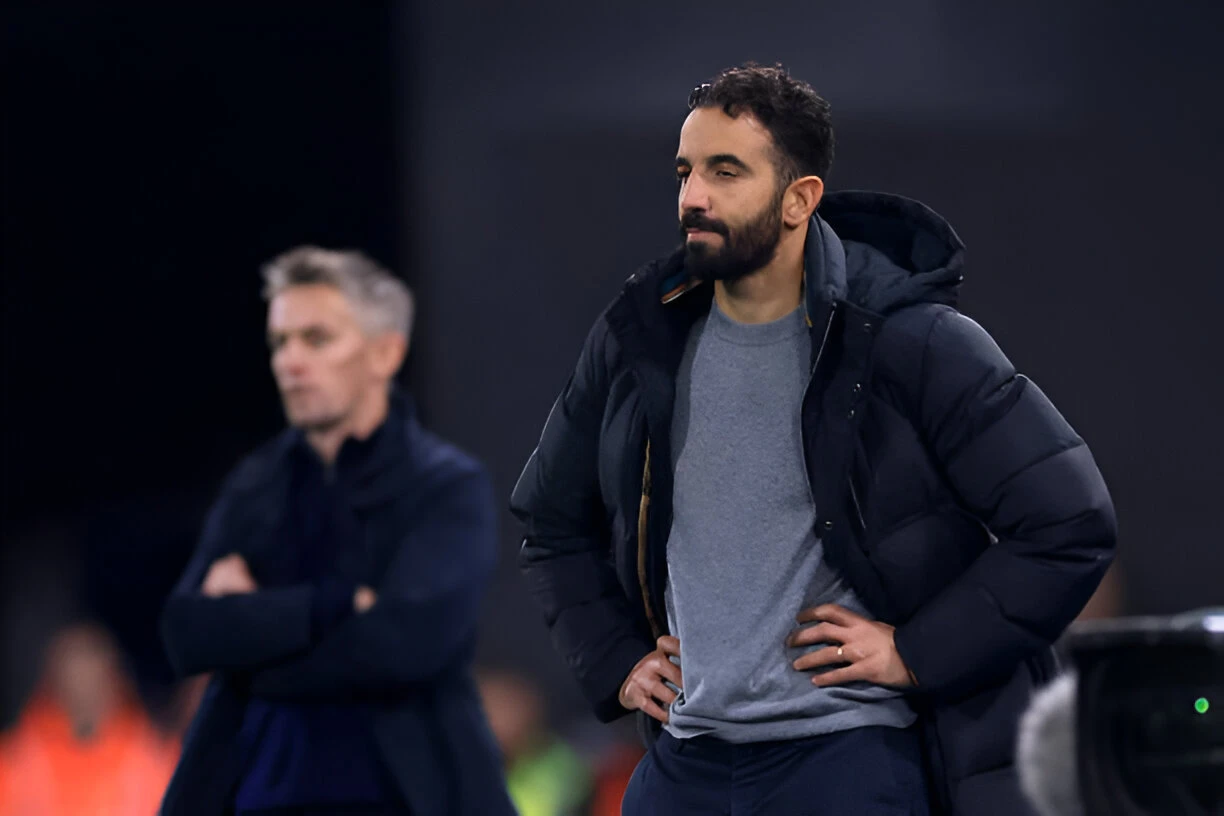Manchester United manager Ruben Amorim has made headlines with his candid remarks about the challenges he’s facing at Old Trafford.
The Portuguese coach, who took charge earlier this month, is tasked with steering the Red Devils out of a rocky start to the season, but his latest comments suggest that the road ahead won’t be easy.
Amorim’s journey began with a 1-1 draw against Ipswich Town in the Premier League and an exciting 3-2 comeback win over Bodo/Glimt in the Europa League. Despite these mixed early results, deeper issues within the squad have surfaced, with Amorim’s quip about his players’ inability to “concentrate on a video for more than 12 minutes” sparking concerns.
A Squad in Transition
United’s disappointing start—just four wins from their opening 12 Premier League games—has already seen Erik ten Hag sacked and Ruud van Nistelrooy briefly step in before Amorim’s appointment. The summer transfer window saw over £180m spent on players, including Matthijs de Ligt, Leny Yoro, Manuel Ugarte, Joshua Zirkzee, and Noussair Mazraoui. However, the team’s inconsistency suggests these new arrivals are yet to fully integrate.
Mazraoui has been the standout performer among the new signings, but others, particularly De Ligt, have struggled to adapt. Former Scotland international Craig Burley didn’t hold back in his assessment, highlighting De Ligt’s lack of pace as a critical weakness. “De Ligt can’t run,” Burley said. “He gets caught out by balls over the top and struggles to recover.”
Amorim’s Tactical Overhaul
Known for his innovative 3-4-3 formation, Amorim is attempting to instill his philosophy at United, but the process has been anything but straightforward. With the festive period bringing three matches a week, the manager has limited time to drill his ideas on the training ground. This has led to what Amorim described as “literally walking Manchester United’s players through training drills” to accelerate their understanding.
According to journalist David Wheeler, who reported Amorim’s remarks on social media, the manager’s comment about his players’ short attention spans was made in jest. Yet, it underscores the scale of the task ahead as Amorim seeks to reshape United’s identity.
Advertisement
Latest Press Conference
We’re on Social Media



Communication and Humility
Despite the challenges, Amorim’s communication skills have drawn praise from former United striker Louis Saha. Speaking to Slotswise, Saha highlighted the manager’s humility and clear articulation of his vision as standout qualities.
“What I’ve been most impressed with is his communication,” Saha said. “He shows humility, but also the confidence needed to manage a top club. He understands that some players need freedom, while others need more structure.”
Amorim’s ability to balance flexibility with discipline could be key to unlocking United’s potential. However, as Saha noted, consistency in approach will be crucial. “We need Amorim to commit to a system and give it time for the players to master it,” he added, hinting at one of Erik ten Hag’s perceived shortcomings.
The Challenges Ahead
Amorim’s tactical demands appear to be testing a squad that is still adjusting to his methods. His comments about concentration may highlight a broader issue: the team’s mental sharpness and adaptability. With a demanding schedule and mounting pressure, Amorim’s ability to keep his players focused and motivated will be critical.
The festive fixture congestion could either consolidate United’s progress or expose their vulnerabilities further. Matches against tougher opposition will test whether Amorim’s ideas are taking root or if the squad remains stuck in transition.
A Long-Term Vision
While early signs have been mixed, Amorim’s appointment reflects Manchester United’s commitment to a long-term project. His track record suggests he’s capable of transforming teams, but it will require patience from fans and the club’s hierarchy.
As Burley and Saha’s contrasting views on players like De Ligt show, Amorim has inherited a squad with uneven quality. Strengthening key positions and offloading players who don’t fit his vision will likely be necessary to achieve sustained success.
Final Thoughts
Ruben Amorim’s candid assessment of Manchester United’s current state might not inspire immediate confidence, but it’s a reminder of the scale of the task he faces. The challenges—both tactical and psychological—are significant, but so too is the potential for growth under his leadership.
With a demanding schedule and a squad still finding its footing, the coming weeks will be a defining period for Amorim’s United. If his communication, humility, and tactical vision can inspire consistency, the Red Devils may yet turn their season around. For now, patience and perseverance will be the watchwords at Old Trafford.
